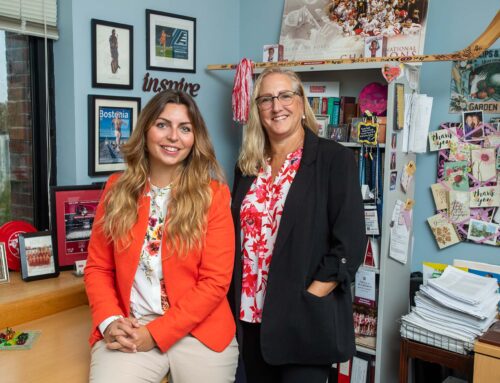This post originally appeared on the Huffington Post
Two years ago, I caught a glimpse of my 12-year-old daughter as she dashed past me on her way outside to workout. Wearing a tank top and shorts, she looked alarmingly long and lean. I asked my husband if he thought she looked thin and he replied, “Of course not, she has just grown taller.” Knowing that he is the overly cautious half of our parenting team particularly when it concerns health issues, I was satisfied with his “expert opinion” and tried to put the image of my lanky baby girl out of my mind.
Over the course of the next few months, there were signs that all was not well with our 12-year-old but, like Laura Collins author of Eating with Your Anorexic: A Mothers Memoir, I was not listening for signs of a mental illness or anorexia and did not hear the conversation that my daughter was trying to have with me in the months leading up to her diagnosis.
When she complained of “not feeling quite right” I coached her to push through the tough times and assured her it would build character. When she wanted to become a vegetarian I selfishly thought it would help me to eat better. On the days when she told me soccer practice had not been rigorous enough, she would ask to do an additional workout when she got home from school, I obliged knowing exercise is a wonderful antidote to a stressful day.
She started to watch cooking shows incessantly and regularly offered to cook meals for the family. After dinner, we would often hear the thump, thump, thump of her doing jumping jacks in her bedroom. In the midst of all this, we had our annual family reunion and not one person commented on her weight or her obsession with exercise. Everyone thought her behaviour was consistent with that of a normal pre-teen.
Over the next few months, I hoped that the behaviours I was observing were through the lens of the anxious parent that I tend to be. None of the other significant adults in my daughters’ life seemed concerned. Hope is a wonderful thing and I am a hopeful person by nature. Being hopeful feels good. Unfortunately, hope is not the basis of a sound health-care strategy when a loved one is on the verge of a mental health crisis.
You hope you are imagining the behaviours; you hope that your strong family bonds mean your child is immune from developing a mental illness; because you have never uttered the word diet in her presence, you hope she would not know the meaning of the word; you hope that the reason she hasn’t had her period for five months is that she never got to the point of having it regularly before it disappeared; you hope that it is “just a phase”; you hope that it is all in your imagination because you do not have time for this in your busy life; and you really, really, really hope that your intuition is wrong as the prospect of managing this disease is terrifying. It is now obvious to me that hope is a thinly veiled cousin of denial.
It was a beautiful fall day when I knew with stunning clarity that our daughter had a life threatening illness. That day I stumbled upon a months worth of school lunch snacks hidden away in a dark basement cupboard. At her annual physical in the afternoon and I learned that she had dropped 15 lbs in three months. In spite of all my hoping, our daughter had anorexia.
Once we were through the acute crisis phase of our daughter’s illness, I reflected on the months leading up to her diagnosis, when the signs and symptoms — which are glaringly obvious to me now — first emerged. Anorexics are good at hiding their illness and it easily disguised. As her mother, surely there was something that I could have done to prevent or slow the decline of her mental and physical health, right?
In retrospect, the only thing I might have done differently for my daughter’s sake is to have hoped just a little less and accepted reality a lot more. Scott Schinaman, Program Clinician at Walden Behavioral Care states that “the mortality rate for anorexia is high not only because anorexia has the highest suicide rate of any psychiatric illness, but because it creates medical complications that can be fatal.
After scouring countless books and articles, I know now that when you suspect your child has an eating disorder you should act immediately because the longer you wait to begin treatment the more established the disorder can become. The sooner your loved one begins to receive medical attention their chances of recovery improve tremendously.
After two years of treatment with outstanding professionals our daughter is generally doing well. Her recovery is ongoing. I never stopped hoping that our daughter would have a positive health outcome and will always be hopeful for new discoveries to help manage mental illness and eating disorders. I have learned that hope alone is not a strategy for recovery from a life-threatening illness but just one piece of a treatment plan.






